The World Health Organization has warned that spikes in coronavirus transmission in a number of countries were being driven by young people "letting down their guard".
"Young people are not invincible," WHO chief Tedros Adhanom Ghebreyesus told a virtual news conference in Geneva.
While the pandemic, which has infected more than 17 million people worldwide, has disproportionately impacted the elderly and people with pre-existing conditions, he stressed that "younger people are at risk too".
Dr Tedros lamented that a major challenge in trying to rein in the novel coronavirus was "convincing younger people of this risk".
He said there was evidence that "spikes of cases in some countries are being driven in part by younger people letting down their guard during the northern hemisphere summer."
WHO's technical lead for Covid-19 Maria Van Kerkhove lamented in particular that nightclubs in a number of places had become "amplifiers" of transmission.
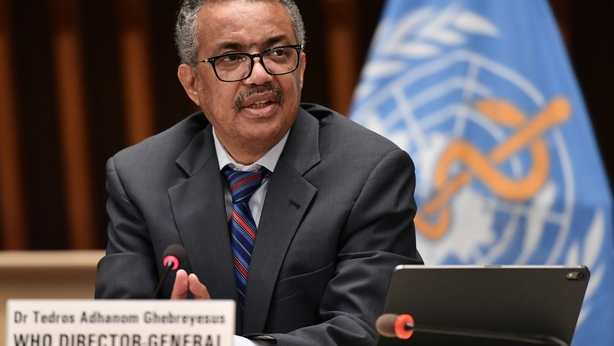
Dr Tedros insisted that "young people must take the same precautions to protect themselves and protect others as everyone else".
"Young people can be infected, young people can die, and young people can transmit the virus to others."
Michael Ryan, WHO's emergencies director, also stressed that very little is still known about the long term effects of even mild Covid-19 infections.
"This disease while it may be mild, it may be moderate, it can affect many organs," Mr Ryan told the briefing.
"We just don't know what the long-term impact of those infections will be," he said, pointing to a study in Germany following Covid-19 patients who were never admitted to hospital, which hinted the long-term impacts could be serious.

Young people, he warned, should of course try to rein in transmission as an altruistic act to avoid spreading the virus to more vulnerable groups, he said, but they should also do so out of consideration for their own health.
"Play it safe," he said. "Use your brain ... Don't take a risk that you cannot quantify."
Europe sees rise in cases
The European Union said it had reimposed travel restrictions on Algeria, removing it from a list of relatively safe countries following a resurgence of coronavirus cases in the north African state.
Algeria's neighbour Morocco would stay on the safe list but would be kept under close watch.
That list of approved states, reviewed every two weeks, has now been reduced to only 12 countries, the European Council announced, although China will be added if and when it grants EU travellers reciprocal access.
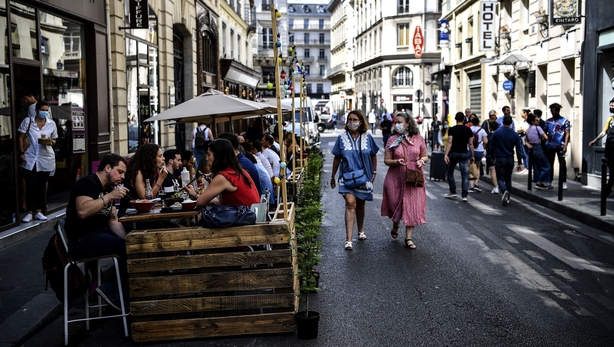
It also includes Australia, Canada, Georgia, Japan, Morocco, New Zealand, Rwanda, South Korea, Thailand, Tunisia and Uruguay.
Britain, Andorra, Monaco, San Marino, Switzerland, Norway, Iceland, Liechtenstein and the Vatican are considered part of the EU travel area for the purposes of this list.
But non-essential travel from large countries like the United States, Russia, Brazil and India is still restricted.
The travel list is not binding on member states, and some - such as Hungary - have imposed tighter measures of their own.
Meanwhile, anyone who tests positive or shows symptoms for Covid-19 in the UK will have to self-isolate for ten days instead of the previous seven, based on a low but tangible possibility that people could remain infectious for longer.
The government said the change in the rule would come into force immediately.
Poland has reported its highest daily rise in coronavirus cases since the start of the pandemic, with 615 new infections, according to the health ministry's Twitter account.
The health ministry also announced the deaths of a further 15 people.
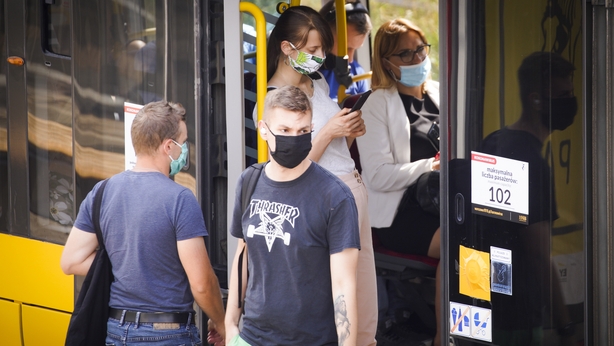
Poland has reported a total of 45,031 infections and 1,709 deaths so far.
Meanwhile, Sweden, whose approach to curbing Covid-19 has been softer than in the rest of Europe, said it would keep encouraging people to work from home when possible after the country passed 80,000 recorded cases.
Unlike most European nations, Sweden never imposed a lockdown and made headlines for having one of the highest per capita death tolls in the world.
The new recommendation, which is directed at those "who have the possibility to work from home", will remain in place until the New Year.
Global coronavirus cases pass 17 million
The number of coronavirus infections recorded worldwide has topped 17 million, according to an AFP tally.
At least 17,022,877 cases have been registered as the pandemic accelerates with a million new infections detected in the last four days.
The United States is the worst-hit country with 4,426,982 cases including 150,713 deaths.
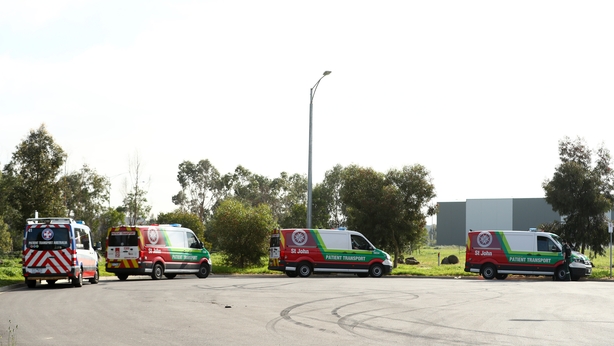
The country recorded a coronavirus death every minute yesterday, with 1,461 new deaths confirmed, the highest one-day increase since May.
States with one-quarter of the US population - California, Florida and Texas - saw a record rise in Covid-19 deaths for the second day.
Florida will close its coronavirus testing centres, a day after the state reported a record 216 deaths from the disease, as authorities batten down for a looming storm.
Tropical Storm Isaias is expected to hit the southern state by the end of the week, according to the National Hurricane Center, and is already packing winds of 80km/h.
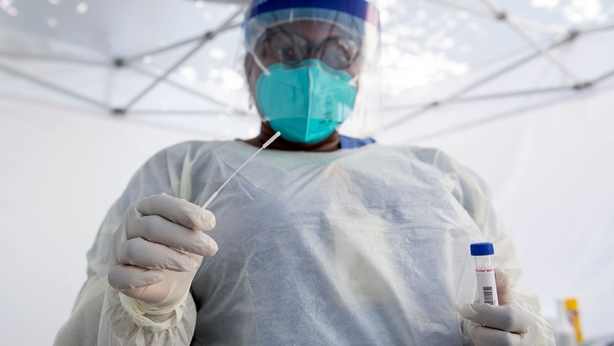
Authorities said they would respond by closing all Covid-19 test sites - already hamstrung by delays - until further notice.
"All sites have free standing structures including tents and other equipment, which cannot withstand tropical storm force winds, and could cause damage to people and property if not secured," state emergency management officials said in a statement.
The world's second worst affected country, Brazil registered record daily numbers of infections and deaths yesterday, sending its overall death toll surging past 90,000.
Australia has reported a record number of new coronavirus infections and its deadliest day of the pandemic so far, following a spike in cases at care homes.
Thirteen deaths and 723 positive tests were reported, mainly in the southeastern state of Victoria, well beyond the previous nationwide record of 549 cases set on Monday.
Tokyo's governor called for restaurants, bars and karaoke parlours to shut earlier to help contain the coronavirus as the Japanese capital reported a record new number of infections.
"The current situation (in Tokyo) is more serious than before," Yuriko Koike said, citing expert opinions.
Japan has so far seen a comparatively small overall outbreak, with almost 32,500 infections and just over 1,000 deaths since the country detected its first COVID-19 case in January.
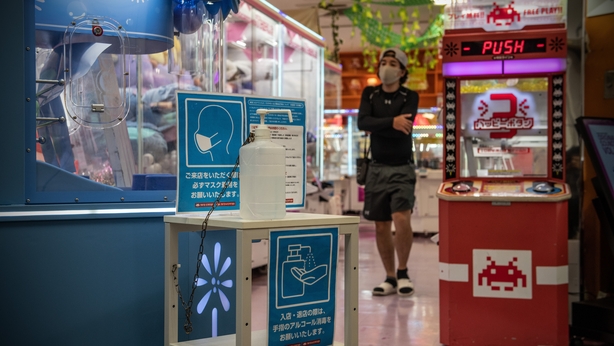
But the number of infections has been on the rise since the government lifted a state of emergency two months ago.
Businesses in the capital that serve alcohol and karaoke parlours will be asked to close at 10pm (local time), from 3 August until the end of the month.
Hong Kong has reported 149 new coronavirus cases, a daily record, including 145 that were locally transmitted, as authorities said the global financial hub faced a critical period to curb the spread of the virus.
It reported 118 new cases yesterday.
Since late January, more than 3,000 people have been infected in Hong Kong, 24 of whom have died.
Brazil first lady tests positive for coronavirus
Brazil's first lady, Michelle Bolsonaro, has tested positive for Covid-19, the government said, after her husband spent two weeks in quarantine with coronavirus.
The announcement came days after President Jair Bolsonaro said he was over his illness and resumed his normal work routine.
Michelle Bolsonaro "is in good health and will follow all established protocols," the president's office said.
"The first lady is being treated by the presidential medical team," it added.
Mr Bolsonaro has faced criticism for his handling of the pandemic.
Brazil has the second-highest number of infections and deaths in the world, after the United States, with more than 2.5 million and 90,000, respectively.
The president, who has compared the virus to a "little flu", has fought to end state and local stay-at-home measures to contain it, arguing the economic fallout could be worse than the disease itself.

